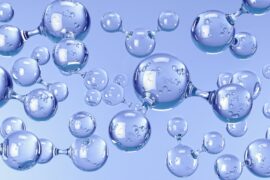Testosterone Replacement Therapy, as known as TRT, has historically been a solution that older men have gravitated towards in hopes of restoring their vitality and sexual drive or performance. Typically, most men that undergo the treatment start to think about TRT after they reach their 40s. This is because testosterone levels in the average man start to reduce annually following a man’s 30th birthday.
But by the time these men reach their 40s and start to consider TRT, this drop in testosterone levels has most likely already interfered with their lives and become noticeable to the people around them. In order to get ahead of it, more men are considering getting TRT at earlier ages, where the treatment can be preventative and help them not miss a beat as they go through their lives.
What Is Testosterone?
Before we talk about the benefits of TRT, it’s important to know what role testosterone plays in the body. Testosterone is a hormone that is produced primarily in the testicles. This hormone is normally associated with sex drive, sperm production, and muscular strength, but it serves more purposes than that. Testosterone, in addition to the aforementioned benefits, also helps with maintaining a man’s bone density, fat distribution, facial and body hair growth, and red blood cell production.
How Do Testosterone Levels Change As Men Age
As men age, their testosterone levels naturally decline. However, the timeline is different for everybody. Though the average man’s testosterone levels start to gradually decline by as much as 1% annually in their 30’s and 40’s, it is becoming increasingly common for many men to start experiencing a decline as early as their late 20s.
What Are Average Testosterone Levels By Age?
Average testosterone levels in men are typically highest during their teenage years. But, average adult men still need to produce similar levels to sustain their energy and support a wide variety of bodily functions.
When a male baby is born, their testosterone production should be around 75-400 nanograms per deciliter (ng/dL) of blood. But as the baby grows, they will reach their peak levels of testosterone production between the ages of 15 through 18, where the average male can expect to produce and sustain between 300 ng/dL to 1,200 ng/dL. This starts to top out after age 19, but the average man can still expect to be within the range of 240 ng/dL to 1,200 ng/dL.
So what’s considered a low testosterone level? The exact number is debated, but most entities can agree that levels are considered to be low if a man cannot produce at least 300 nanograms of testosterone per deciliter (ng/dL) of blood.
What Happens If Your Testosterone Levels Get Too Low
Because testosterone is responsible for supporting many different functions within a man’s body, not having enough testosterone can cause a holistic decline in the quality of that man’s life.
One of the first issues that can indicate low testosterone levels are changes in sexual activity or function, which include having a lower sexual libido or even having issues with infertility. Additionally, men in this group may also feel lower levels of emotional wellbeing, including, but not limited to, lower self-confidence, feelings of depression, lack of general motivation, having a hard time focusing, having less energy, or being more forgetful.
But these changes are not just limited to the emotional and sexual aspects of the man’s life. Other indications that testosterone levels have gotten too low can also include weight gain due to increased levels of body fat, difficulty building muscle mass and strength, thinning hair and hair loss, and weaker bones due to lower bone density. This indicates that lower testosterone levels can be both mentally and physically debilitating.
What Factors Affect Testosterone Levels
There are genetic factors that can affect testosterone levels. One such example is a disease called hypogonadism, which lowers the ability of the testicles, or the pituitary gland that controls the testicles, to produce normal levels of testosterone. This disease can be inherited and is something that warrants medical treatment if developed.
Additionally, there are other diseases that affect testosterone levels like cancer, metabolic disorders, and diabetes, among others. But normally for diseases like these, treating them medically may help testosterone levels return to their normal levels.
But not all things that affect testosterone levels are related to our genetic makeup. Lifestyle factors also play a huge role in affecting testosterone levels. For example, if a man is very active in a sport that causes him to sustain an injury to the testicular area, this can disrupt blood flow to the testicles and cause lower levels of testosterone production. Additionally, using drugs or alcohol can affect testosterone levels greatly, and it may be recommended to avoid using either substance if your medical provider determines you have low testosterone levels.
However, though these factors all play a part, the number one reason for lower testosterone levels is actually related to weight gain. And since weight gain is primarily caused by a man’s diet and physical activity levels, these are two factors that must be addressed and accounted for before determining what needs to be done to help regain normal testosterone levels.
How Can You Check Your Testosterone Levels?
If you’re looking to check your testosterone levels, you can work with your doctor to measure your levels by ordering a blood test, though it is advised to take multiple blood tests before diagnosing a low testosterone condition.
How Testosterone Therapy Treatment Can Be a Solution
After lifestyle factors have been addressed, if a man is still experiencing symptoms from lower levels of testosterone and hoping to find a solution that can help them replenish their youth and vitality, testosterone therapy treatment may be a great option.
For example, with a genetic condition like hypogonadism, testosterone replacement therapy can help reverse the effects that this condition has on your body and not let it hinder your ability to live a fulfilling life.
Additionally, testosterone replacement therapy is very personalized, allowing it to fit the needs of your life. Professionals who administer the TRT can adjust the dosage to fit your body’s needs, and you can determine if you’d like to get the TRT in the form of injections, patches or gels, pellets, or another viable method.
And the benefits are worth the experience, as many who get TRT report the following:
- An increased sex drive,
- Longer lasting erections,
- Higher energy levels,
- Weight loss,
- Better results building muscle,
- Optimized brain performance,
- And more!
If you’re ready to consider the next step of revitalizing your life through TRT, talk to your doctor or reach out to a service like Polong Labs that helps partner you with the right anti-aging clinic. They can tell you more about whether TRT is right for you, and help you start the process of revitalizing your life.










